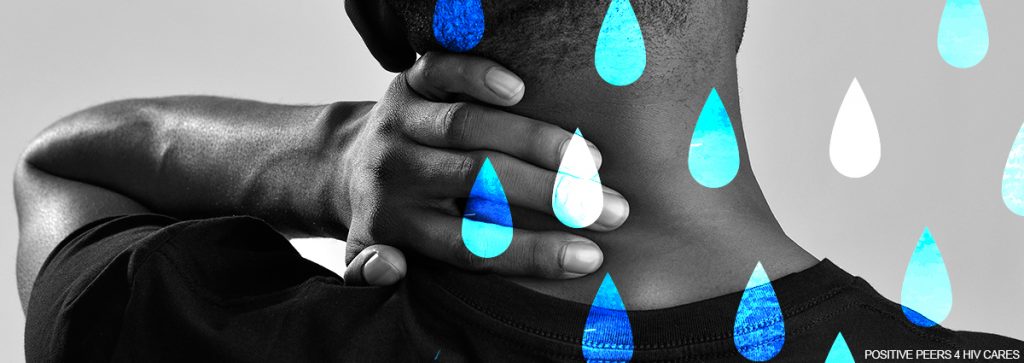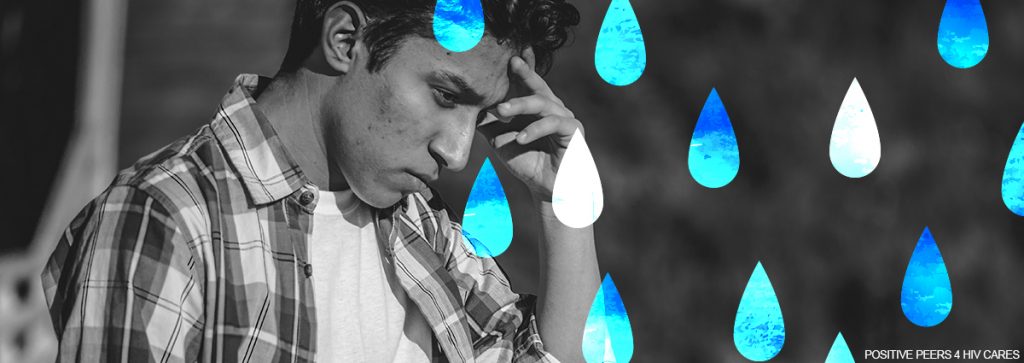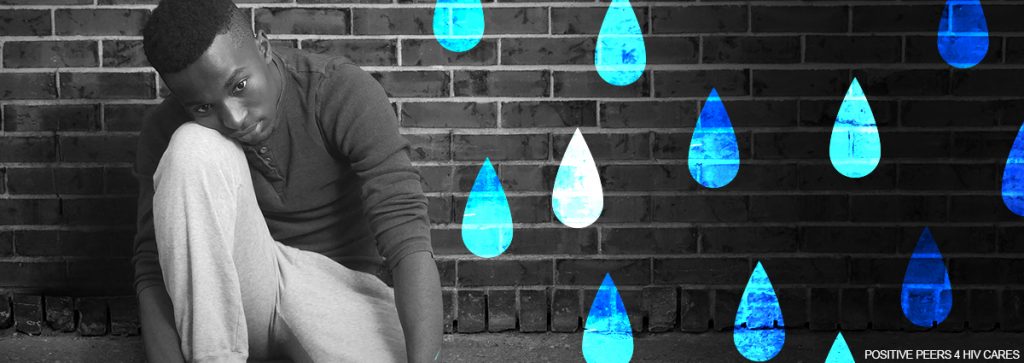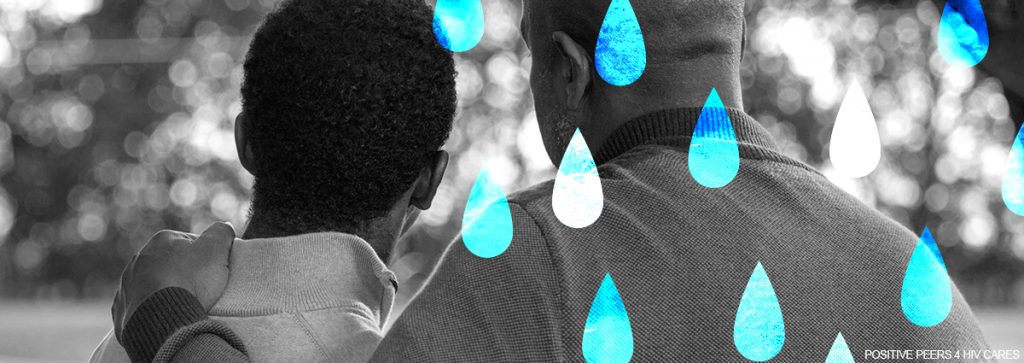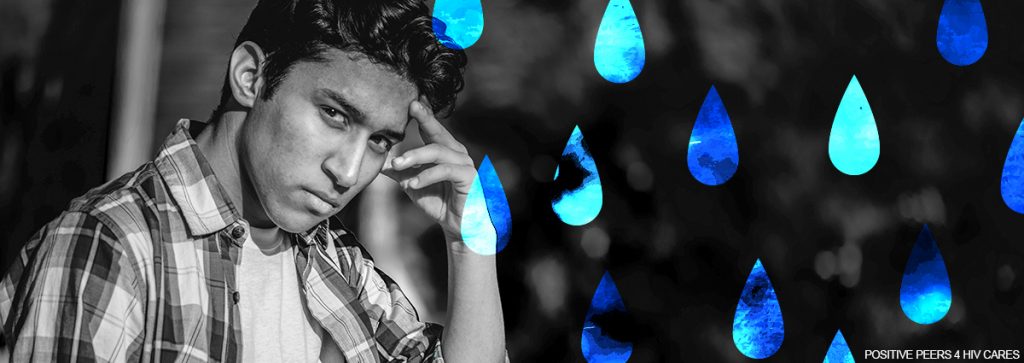
By: Jennifer McMillen Smith, LISW-S, HIV Social Worker at MetroHealth Medical Center and medically reviewed by Ann K. Avery, MD, Infectious Disease Physician at MetroHealth Medical Center
When you lose someone you love, grief is more than just feeling sad. It’s more like a process that helps you learn to live with the loss.
(Special note: Grief doesn’t just affect people who are coping with a recent death — you can also grieve other types of losses. For example, when you’re diagnosed with HIV, you may experience grief because you may feel like you lost your “good health” or state of living without a chronic illness when you find out you have something so life-changing. The grieving process is the way we work through all sorts of experiences with loss.)
The most important things to understand about grief:
- It’s natural. We all go through it.
- It’s painful. There’s no happy way to endure grief.
- It gets better. You will be okay — but it takes time.
Now, let’s check out some suggestions for coping with grief.
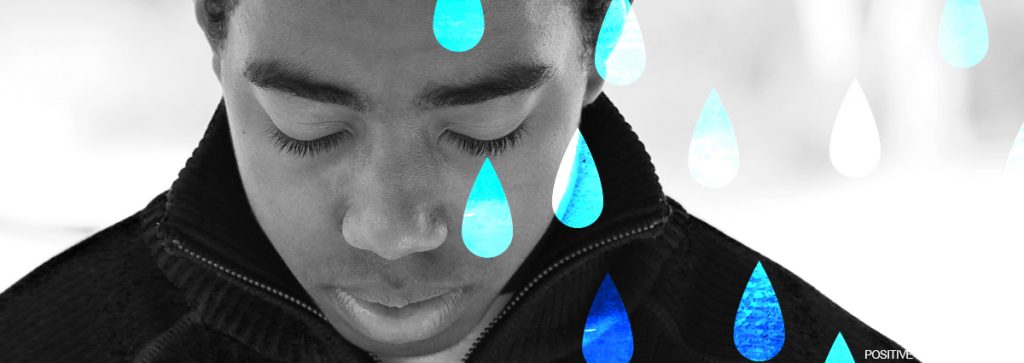
Working through the five stages of grief
You might’ve heard about the “five stages of grief.” This doesn’t mean everyone experiences grief in this order of feelings, but normally they are all there at some point.
- Denial: Experiencing loss can put your mind in a fog. You’re going through the motions, but you can’t deal with the reality of your situation.
- Anger: A loss may make you feel mad at the world. Anger usually goes away on its own because it’s not productive — it clouds your judgment and makes it hard to get along with people. If you have HIV, you might feel angry at the illness itself, or the person you think might have exposed you to it. Feeling angry is normal, you just want to be careful not to get stuck there.
- Bargaining: It’s super common to go through a lot of, “If only I’d done X…” scenarios in your brain. Or maybe you’ll think, “Please, God, get me through this and I’ll be better next time.” This means you’re starting to heal. But you’ve still got a long way to go.
- Depression: Here, you’re facing the full consequences of loss. Feeling sad is 100% normal. The thing with depression, though, is that it can be hard to get through alone. You may want to consider counseling to get through the depression stage.
- Acceptance: You’re not necessarily “over it” at this point, you just recognize that there are more productive ways to deal with your grieving feelings. Acceptance means you’ve learned to thrive in your new reality without the heavy emotions like anger and depression. You’ll likely have lots of good days and some not so good days, but that’s okay.
Keep in mind, the stages of grief don’t always happen in a straight line. Grief is more like a circle where you bounce back and forth between stages. You could feel acceptance on Monday, then hear an old song on Tuesday that sends you back to the grief or anger stages. By Thursday, you’re depressed and come next Monday, you’re back to acceptance again.
Over time, it all becomes a lot less painful. But the grief never goes away completely.
Don't fight these feelings
It’s really important to let yourself grieve. That means facing up to your feelings, not pushing them aside or pretending they don’t matter.
You might try talking to your friends and family about how you feel. It’s nothing to be ashamed of or embarrassed about.
Don’t feel like you have to talk it out, though. Maybe you’d rather find an outlet for your grief, like reading, writing, dancing, or painting.
Come join our private, stigma-free, supportive community.
Health management tools with medication & appointment reminders.
Social networking in a community conversation & private chats.
Remember to take care of your wellbeing
We can’t stress enough how important it is to make sure you’re eating well, getting plenty of exercise, and trying to get some sleep at night. When you’re healthy, your body does a better job of adjusting to the emotional roller coaster of grief.
Grief brings stress, which makes all your body’s systems work harder — especially the immune system. Take advantage of days when you feel good to get in extra workouts. You may even fix a few nutritious meals in advance.
There is a great blog out there about grief http://www.refugeingrief.com/blog/ that you could check out. The creator, Megan, also made this handy tip-sheet of things you can do when you’re grieving: http://www.refugeingrief.com/wp-content/uploads/2017/11/RiG_infogpraphic-EarlyGrief-PrintReady.pdf
Get ready for setbacks
You can be doing fine for a few days and then walk past a restaurant where the scent of a certain food brings the memories flooding back.
You can’t predict when these triggers will go off, but you can plan for them. Maybe you call a friend or family member, or you develop a mental routine of thoughts that help you feel better again.
Before long you’ll start noticing that these memories feel more pleasant than painful in that they remind you of the beautiful times you had.
Seek help if things get really bad
Emotional pain cries out for relief. Alcohol and drugs can seem to address the pain — but they end up causing more suffering than the grief ever did. Counseling and companionship can get you through the worst days, if you let them.
If you’re already using drugs or alcohol to deal with your grief, know that it doesn’t make you a bad person. It’s one thing to use a little now and then to take the edge off. But if you’re using every day and it’s causing trouble in your life, it might be time to ask for help. 12-step programs like Alcoholics Anonymous are a great place to start. You can find a meeting near you here: https://www.aacleve.org/
Local Cleveland, Ohio places to get help:
- Cornerstone of Hope
- http://www.hospicewr.org/patients-and-caregivers/grief-and-loss/Pages/Resources.aspx
You don’t have to grieve alone
Let the people and places in your world help get you through the grieving process. Talk to friends, get advice from relatives who’ve been there, and create a plan to deal with the emotional left turns.
Everybody grieves in different ways. If you lose your mom, what works for your sister might not work for you. That’s just one more part of the process.
It takes time, patience, and persistence but it happens — the memories start bringing more happiness than sadness. That’s when you know you’re on the path to healing.
Related Blogs:
